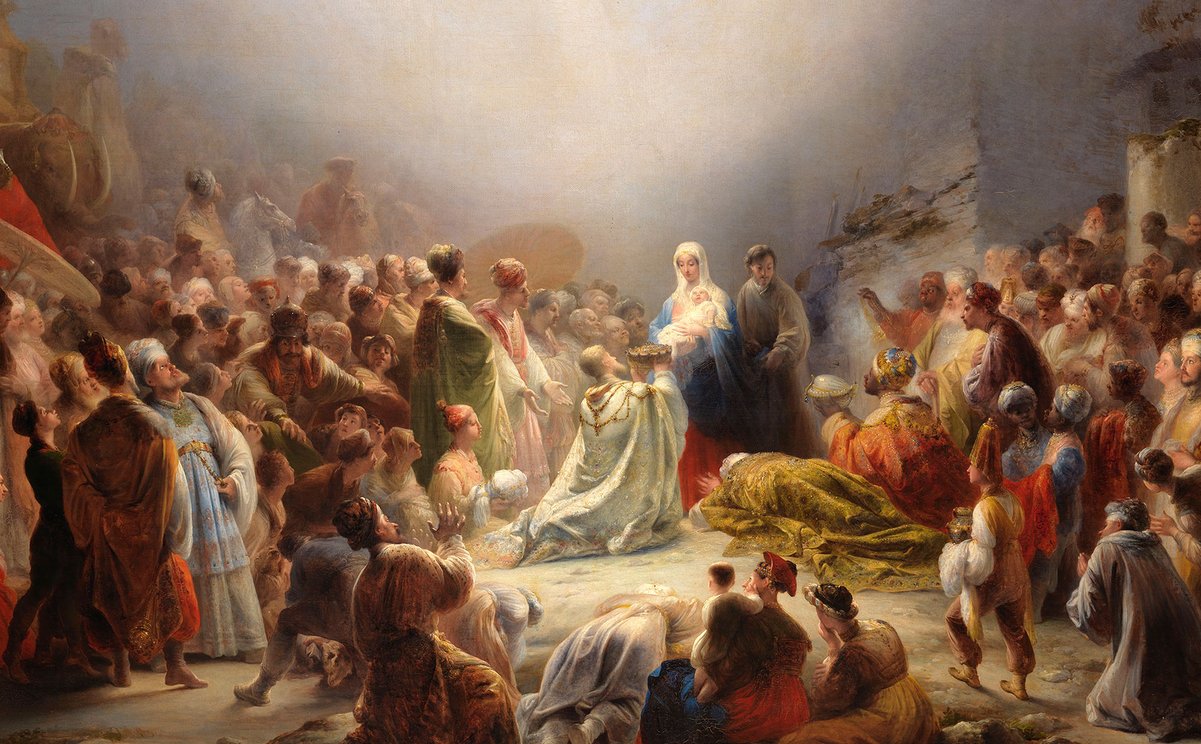Divinity becomes human
 (The Adoration of the Magi, Domingos Siqueira, 1828, Public Domain)
(The Adoration of the Magi, Domingos Siqueira, 1828, Public Domain)
What does it mean for God to become man? Does divinity become power, or wealth, or fame when translated into humanity?
Background
In Philippians 2 Paul is refuting three different claims against Jesus
- He claimed to be God
- He was disobedient to the Jewish law
- He was cursed because he hung on a tree
In arguing for Jesus divinity as the Messiah, Paul also gives us a glimpse of what is means for divinity to become human - what the incarnation is all about.
Claims of divinity
Jesus did claim to be divine during his earthly ministry. However, he did it subtly, not shouting from the roof tops or calling a press conference. After healing someone on the sabbath, in John 5:17 Jesus clearly claimed he was God. And his opponents clearly understood this claim (John 5:18), now planning to kill him.
Disobedience to the Jewish law
Jesus understood the 613 commandments of the Jewish different from the leaders of his day. Witness Matthew 12:1-2 - he allowed his disciples to pick grain on the sabbath to eat. Again he claims divinity here as well, “For the Son of man is lord of the sabbath.” (Matthew 12:8).
Cursed on the tree
For the Jews, Roman crucifixion was especially bad (beyond even the physical torture). Deuteronomy 21:22-23 makes it very clear that a curse would come upon any man who died by being hung on a tree.
Is this the messiah?!?
So it seems Paul has an uphill battle to convince others that this Jesus was the promised messiah. He claimed to be God but did not even free the Jews from Roman control, let alone conquer anything else. He could not keep to the Jewish law - plenty of Pharisees could do that. And worst of all, he died on a tree. This could not be the chosen one, could it?
Not so fast, my friend
Here Paul turns the argument on its head. Jesus was God, but he “did not count equality with God a thing to be grasped” (Phil 2:6), that is, he did not exploit his divinity for personal gain. And he did follow the law, so much so that he was “obedient unto death” (Phil 2:8). And that death on a cross (or tree) was no longer a cursed death, but now God “highly exalted him” (Phil 2:9).
When our perspective changes, the very arguments against Jesus become arguments in his favor. Divinity does not translate into power, wealth, or fame in the incarnation. It translates into service, obedience, and selfless love. It is only through this lens can we see Jesus as the messiah.
Into the deep
For more check out “Rejoice in Suffering: Exploring Paul’s Letter to the Philippians”.